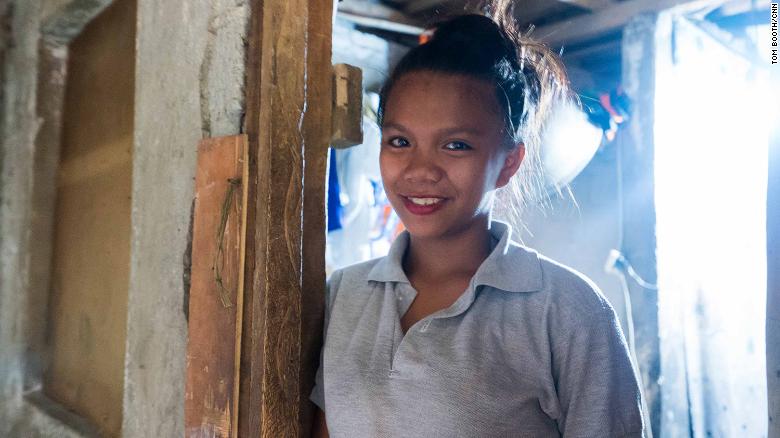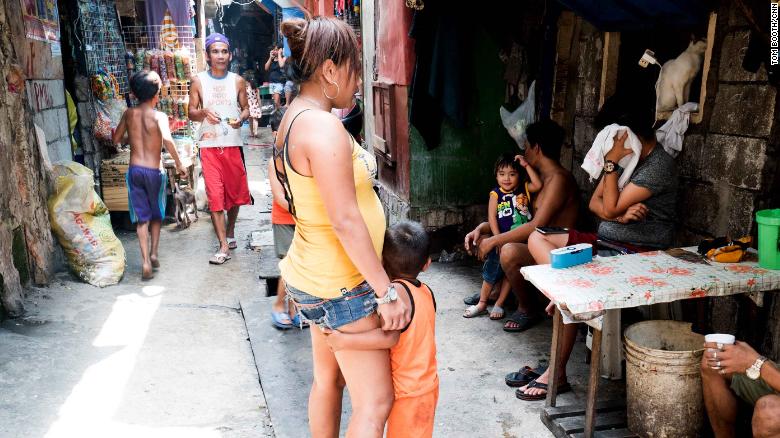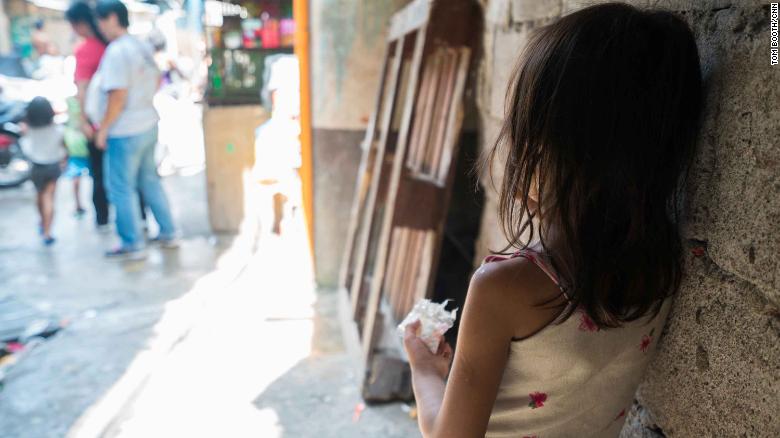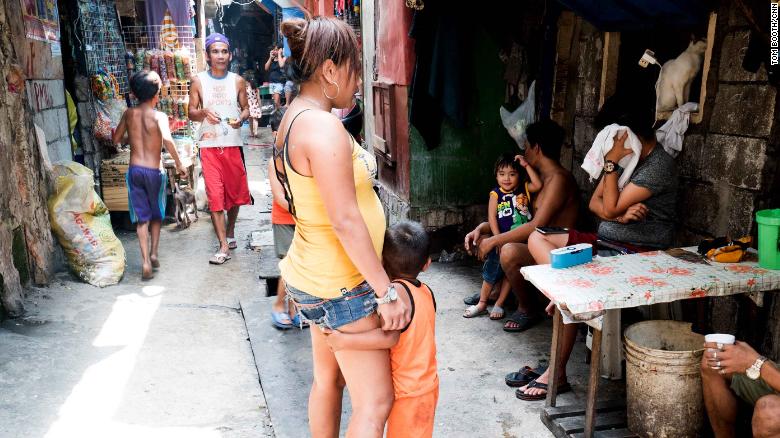16 and trying not to get pregnant
Manila, Philippines — Hazel Encarnacion, 16, breastfeeds her three-month old daughter as she walks through the narrow alleyways of Tondo, one of Manila's poorest and most crowded neighborhoods.
The fiercely proud new mother says she wants to wait five years before having another baby.
That's easier said than done in the Philippines, a deeply devout country where abortion is illegal, and a lack of knowledge about modern family planning methods mean that birth control isn't widely used. Historically, teen pregnancy rates have held steady in the Philippines while declining elsewhere in Asia, according to the United Nations Population Fund.
But newly released official figures point to a slight change in this trend. According to the Philippines' National Demographic and Health Survey for 2017, 9% of Filipino women age 15-19 had begun childbearing, down from 10% in 2013.
Those numbers are still high, considering the global teen pregnancy rate was 4.7% in 2015, according to the World Health Organization.
Encarnacion is a beneficiary of new legislation and efforts by NGOs that seek to make contraception more widely available in the Philippines.
She points to the spot on her left arm where a contraceptive implant has been inserted under her skin free of charge by the NGO, Likhaan.

"I want to be able to take good care of my children," Hazel Encarnacion, 16, says.
It could help her delay pregnancy for up to three years, allowing Encarnacion and her husband, who earns fewer than $5 a day working as a delivery man at a market, to conceive a second child when the couple feel they can afford it.
"It was my decision so we could control it. I just want two children," she says.
Before she became pregnant with her daughter, Encarnacion says she thought birth control could only be used by women who already had children.
According to the 2017 national survey, 28% of young married women in the Philippines said they aren't getting the birth control they need. For unmarried sexually active women, almost half say they don't have access to contraception.
'What adolescents ask their parents?'
In neighborhoods like Tondo, it's not unusual to find women who have had more than 10 children.
In the absence of accessible contraception, many women here have had to resort to abortion as a means of birth control. Illegal abortion is performed in a climate of fear and shame resulting from strict legal and religious prohibitions, according to the UN. The Philippines is deeply religious, with Roman Catholics accounting for 80% of its population.
But in 2012, after a 14-year battle with the Catholic Church and anti-abortion groups, the Philippines passed a reproductive health law that mandated universal access to birth control and more reproductive health education, with a goal of reducing the country's birth rate.
Legal challenges slowed the law's full implementation until late in 2017, when the country's Food and Drug Administration lifted a temporary Supreme Court court order banning 51 types of contraceptives by ruling that they did not induce abortion.
Philippines President Rodrigo Duterte has also pushed for more birth control to be made available for the poor, and last year signed an executive ordercalling for extra funds and support.
One month later, in a public address, he suggested that women should use pills and injections instead of condoms, because: "they are not pleasurable." Though his press secretary defended his remarks, Duterte's critics say his "jokes" promote violence and discrimination against women.

A woman stands in an alley in Tondo, a child clutching her leg.
But because of Duterte's recent efforts, contraceptive implants like the one given free of charge to Encarnacion, will be more accessible to women. The implementation of his executive order is seen as key to helping the country reach a goal of reducing poverty by 13% by 2022.
Healthcare worker Magdalena Bacalando, who distributes birth control and information about reproductive health on the streets of Tondo, says the new law still doesn't fully allow health care workers to reach some of the women in greatest need: teens. By law, parental consent is needed for adolescents who want to use birth control, she says.
Most of the girls in the community where Bacalando works get pregnant at 15 or 16 years old — in the Philippines the age of sexual consent is just 12.
"They're already sexually active," says Bacalando, who works for Likhaan.
"They're not asking their parents. What adolescents ask their parents?"
'I feared God but I had no other choice'
But older women say the situation in the Philippines is much better today than in the past.
The birth rate is beginning to decline, with the average fertility rate for women there standing at 2.7 children in 2017, down from three children in 2013, according to official figures. The 2017 data also suggests that the number of teen pregnancies is falling, with 3.7% of 16-year-olds starting families compared with 5% in 2013.

A young girl looks on a bustling street in Manila's Tondo neighborhood.
A 52-year-old mother of 11 children, who asked that CNN not use her name, says she ended three pregnancies with low cost and risky procedures. In one case, she paid 1,200 pesos ($23) for a procedure that involved a rubber catheter that damaged her uterus causing her to bleed profusely.
When she arrived at a hospital, unable to control the bleeding, she says she was threatened with the possibility of prosecution for the crime of ending her pregnancy. Under the Philippine Penal Code, a woman performing an abortion on herself, or anyone who intentionally causes an abortion with consent of the pregnant woman, is subject to six months to six years in prison.
"I was scared. I feared God but I had no other choice because life was so hard. My husband didn't have a regular job," she says.
To end another pregnancy, she says she took black market abortion pills and visited a local healer who performed a $3 "massage."
"She just kept pushing hard on my belly. Whenever the baby moved, she just pushed it down harder, so that, so it could be like, crushed. It was quite painful but I had to bear it."
The woman said she hopes greater access to contraception will spare her nine daughters the painful choices she said she had to make.
"I'm in favor of family planning. My friends, cousins, all of them, even my daughters-in-law, they use contraceptives because they don't want to get pregnant again."
— CNN's Katie Hunt contributed to this report from Hong Kong.
News Courtesy: www.cnn.com











